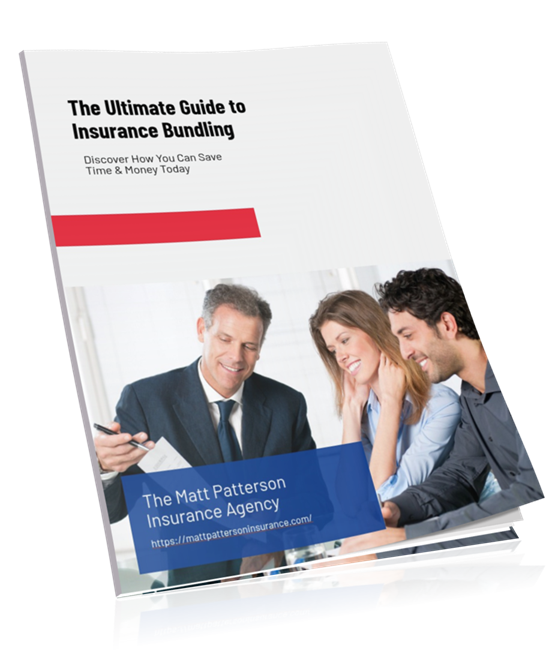When most people hear the phrase “estate planning,” they picture something reserved for wealthy families with sprawling properties. The reality is that every adult, especially those with children, property, retirement accounts, or life insurance — already has an estate whether they realize it or not. The real question is whether that estate is planned or left open to confusion.
Wills and trusts are often discussed as the backbone of estate planning. At the same time, many people overlook how Wimberley retirement planning and insurance ties into the picture. The truth is that your financial plan works best when your legal documents and your insurance policies work together, especially when coordinated with.
Why Estate Planning Matters
At its simplest, estate planning is about who takes care of your assets and responsibilities if you’re no longer able to. Without a plan:
- State probate courts step in to make decisions.
- Assets may not be distributed how you would have liked.
- Family members may feel added stress during an already difficult time.
Estate planning is not just about passing on wealth. It’s also about protecting dependents, funding education, maintaining businesses, and ensuring financial stability for survivors.
The Role of a Will
A will is the most basic estate planning tool. It designates:
- How you want property and assets distributed.
- Who you want as guardians for minor children.
- Who will serve as executor to carry out instructions.
Without one, state law determines these decisions, which may not align with your wishes. Drafting a will ensures that your voice is part of the process, even when you cannot speak for yourself.
How Trusts Add Flexibility
Trusts go a step beyond a will. They allow more control, privacy, and in some cases, tax advantages. A trust can:
- Allow assets to bypass probate, saving time and reducing legal costs.
- Set conditions on when and how beneficiaries receive funds.
- Provide ongoing financial management for children or family members with special needs.
- Protect assets from certain creditors or claims.
While not everyone needs a complex trust structure, many families find that a simple revocable living trust gives them peace of mind and makes life easier for the next generation.
Where Insurance Fits In
Insurance often provides the funding that makes estate and financial planning possible. Think of it as the immediate liquidity that covers expenses, debts, or future needs without forcing your heirs to sell property or scramble for funds.
Some examples:
- Life insurance ensures that beneficiaries have funds for expenses like mortgages, tuition, or daily living costs.
- Disability or long‑term care coverage protects your income and keeps your plan stable if you are temporarily or permanently unable to work.
- Business insurance can guarantee continuity if ownership needs to transfer after a death or disability.
- Wills and trusts say where assets should go. Insurance makes sure the money is there at the right time.
Common Gaps We See
Many people handle these components in isolation. They set up a life insurance policy years ago, then draft a will later, but never update beneficiary designations or align coverage with the legal plan. That’s when issues surface:
- An ex‑spouse remains listed as beneficiary because policy records were never updated.
- Insurance proceeds bypass the trust entirely, going straight to individuals in ways that cause conflicts.
- Coverage amounts stay the same while families grow, leaving heirs underfunded.
Benefits of Aligning Insurance with Estate Planning
Clarity for loved ones. There’s no question about who gets what.
- Efficiency. Funds are available faster and distributed as you intended.
- Protection. Insurance covers unexpected gaps so survivors aren’t burdened with costs.
- Stability. Business and personal finances can continue without disruption.
When the legal and the financial work together, families avoid many of the stresses that lead to disputes after loss.
Next Steps for Families and Business Owners
- Review your will or consider drafting one if you don’t have one yet.
- Explore whether a trust would add efficiency or security for your specific situation.
- Meet with an insurance advisor to ensure your policies are both up to date and aligned with your estate plan.
- Schedule regular reviews. Family and business circumstances can change quickly, and so should your planning documents.
Estate and financial planning in Wimberley is about much more than distributing property. It’s about giving clarity, protecting businesses, and making sure financial goals carry forward no matter what happens.
Wills and trusts provide the legal framework, but insurance is the fuel that makes the plan actually work. Together, they form a stronger structure than either would alone.
We help families and business owners connect these dots, so their policies support their legal plans instead of working against them. If you haven’t recently reviewed your will, trust, and insurance together, now is the time with a Wimberley financial advisor at Matt Patterson. A coordinated plan today is the difference between uncertainty and peace of mind.
FAQs
If I have a trust, do I still need a will?
Yes, absolutely. A will is still necessary to do a few key things a trust can’t, most importantly, to name guardians for your minor children. A will also acts as a “pour-over” will, which is designed to catch any assets you may have forgotten to put into your trust and “pour” them in after you pass away.
Is creating a trust only for very wealthy people?
This is a common myth. While trusts are essential for managing large estates, they are incredibly valuable for anyone with minor children or for those who simply want to make the transfer of their assets as simple and private as possible for their family. The goal of avoiding probate and providing clear instructions is important for families of all net worth levels.
Who should I choose to be the trustee of my trust?
Your trustee should be someone you have absolute confidence in to be responsible, organized, and to always act in the best interests of your beneficiaries. This can be a trusted family member or friend. For larger or more complex estates, many people choose to name a professional or corporate trustee (like the trust department of a bank) to ensure impartial and professional management.
How much life insurance do I actually need to fund a trust?
The amount depends on your specific goals. You should consider what it would take to pay off all your debts (like your mortgage), replace your income for a certain number of years, and fund major future expenses, like your children’s college education. We can help you work through a detailed analysis to arrive at a coverage amount that truly protects your family.
How do I change the beneficiary of my life insurance policy to my trust?
Once your attorney has drafted and you have signed your trust document, changing the beneficiary is a simple process. You’ll just need to complete a “change of beneficiary” form provided by your life insurance company, listing the full legal name of your trust and the date it was created as the new primary beneficiary. It’s a small piece of paperwork that makes a world of difference.






